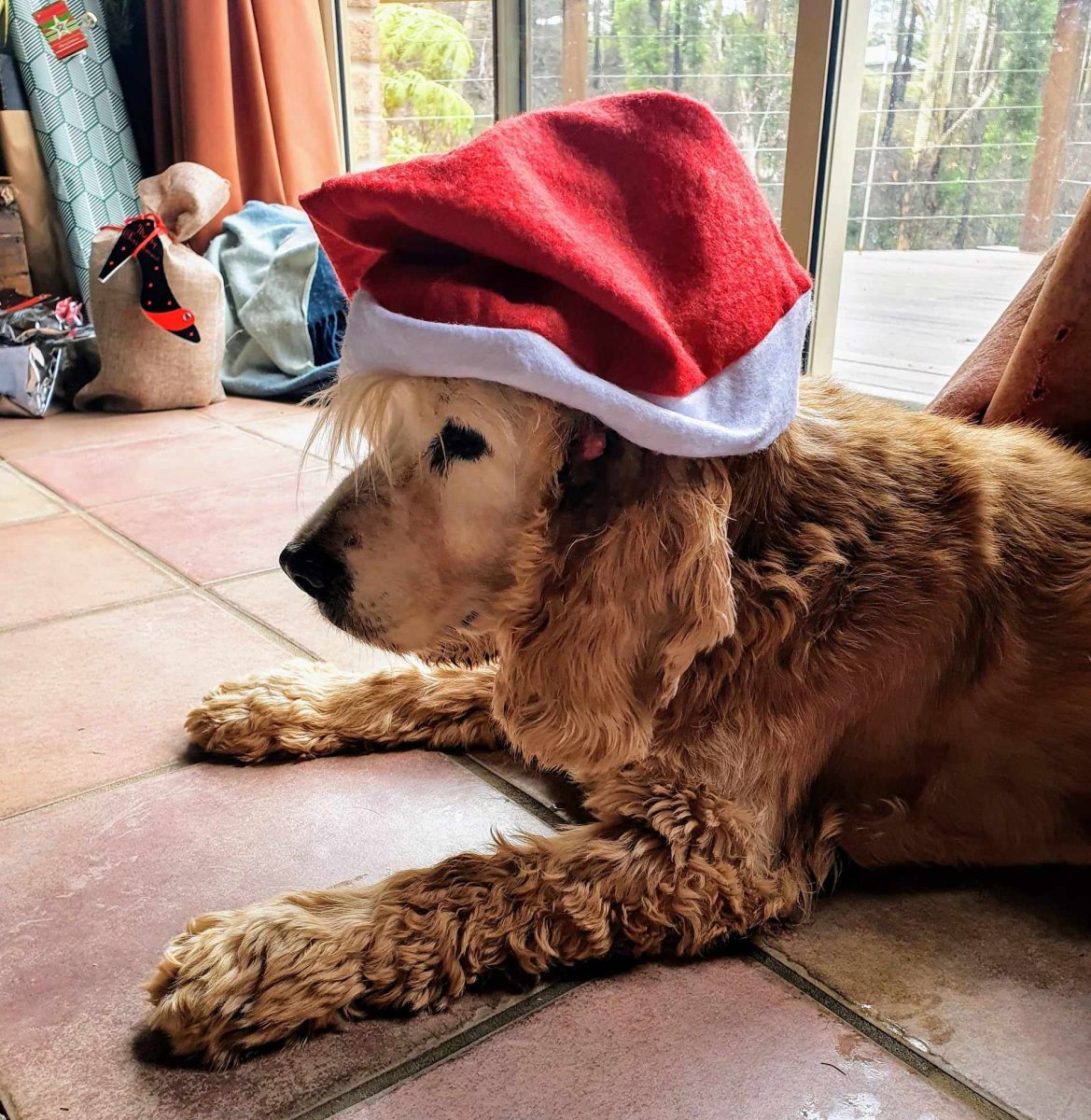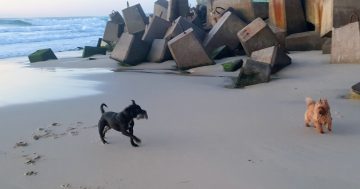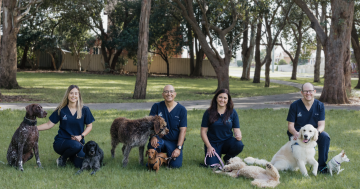
The silly season can be confusing for our furry family members – here’s how you can make it a bit easier on them. Photo: Kim Treasure.
It’s hot. It’s busy. It’s summer.
There’s lots of unusual sounds, smells and snacks about, which is lovely if you’re a person but a little riskier for our four-legged friends.
Region Illawarra spoke to Greencross Fairy Meadow director and veterinarian Dr Luke Michel, about how we can make sure our pets can (safely) enjoy the holiday season alongside us.
He said the three biggest risks to pets over the silly season were food, fireworks and heat.
Although it’s easy to give in to those puppy dog eyes after Christmas lunch, he said snacks are best kept to a minimum.
“Boxing Day is probably our busiest day of the year for emergencies, and it’s usually because they’ve been given something that they shouldn’t have,” he said.
“If you’re not sure, don’t do it and if you feel the need to google, do it beforehand.
“They can still enjoy their Christmas, but try to stick to dog food that they’re used to, or put aside a bit of chicken, just the white meat, if you feel the need to give them something special.
“Rich food they’re not used to eating, the ham, the pork – all those things you need to be careful of.
“Chocolate and sultanas are toxic to dogs, so if people give them a bit of fruit cake or something they’re risking kidney damage.
“You’re doing them more harm than good by giving them something they shouldn’t have.”
If it’s been a couple of weeks and that chicken has a bit of a green tinge to it? Forget it. It’s cheaper to bin leftovers than pay for an emergency vet visit.
When it comes to fireworks, or any loud, unusual noises, Dr Michel said some dogs couldn’t care less, while others will do serious damage to themselves in their frenzy to escape.
If your dog usually reacts poorly you can set them up a safe, cozy den somewhere that’s as quiet as possible – preferably close to you.
If they already hide under the bed, or behind a sofa, that’s a good spot to set up with some cozy blankets and maybe a cuddly toy or two.
Then comes a bit of trial and error.
“There are medications; there’s thundershirts; there’s all sorts of things that work for some dogs and not for others,” Dr Michel said.
“With the medication, it’s usually best if it’s given a couple of hours prior so talk to your vet if your dog is likely to need that. When you’re hearing it at two or three in the morning, those dogs are already distressed.
“Do a test run beforehand; you don’t want to be trialing a medication at the time you want it to work.”
When it comes to heat, dogs are like us – they want to be out of it.
Dr Michel said it was best to skip a walk on stinking hot days, especially if you have a breed with a thick coat or a squashed face.
“You’re just risking them being unwell,” he said.
“Make sure they have somewhere nice and shady where they can get out of the hot sun and have free access to water.
“If they’re drinking a lot, it’s for a reason. Make sure they have multiple sources of water and you can put ice blocks in their water bowls or freeze a Kong.”
Never leave your dog unattended in the car.
Once they’ve overheated, the damage is already done.
“Their body’s not meant to stay at that temperature for a long period of time, so the normal functions of the body just can’t work and things start to break down,” Dr Michel said.
“Sometimes you can cool them down but the damage is already done.”
The warning signs of heat stress are agitation, panting and bright red gums.
If your dog is overheating, take them to a vet.
“If you can’t get to a vet, you can put icepacks in hairless areas but it’s best to seek that advice because there’s some things that you might think will help cool them down that won’t be appropriate in that situation,” Dr Michel said.
“Avoidance is the main thing, so if it’s hot just try to keep them out of that heat.”


















